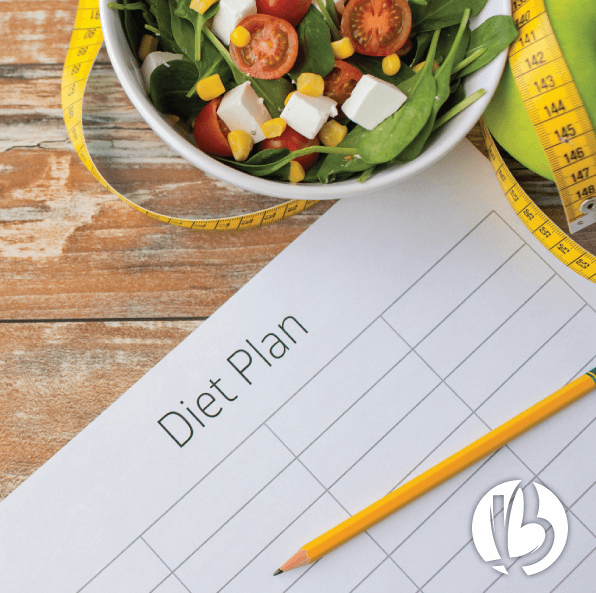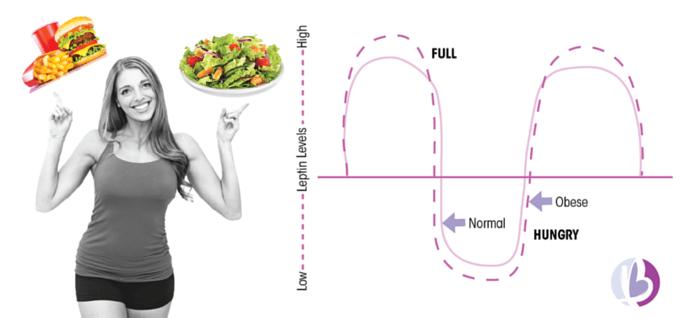Diets Decoded
Every so often there seems to be a new “this is the best yet” diet or workout program trending. You can’t even open social media without reading about someone trying a new and trendy diet and/or exercise program or talking about trying a new and trendy diet/exercise program.
These trendy diets and exercise programs want you to believe that they’ve cracked the code. That they contain all the secrets you never knew you needed to know in order to lose weight, get healthy and reach your goals.
And many of these trendy diets and exercise programs do work.
Why? Because good nutrition, eliminating processed foods and high intensity interval training works. If there’s one thing we can all agree on, it’s that eating more produce and quality protein (you’ll find this in almost every diet that’s trending these days) is always a great choice!
There’s no denying it–focusing on your health is beneficial. Getting into a regular exerciser routine is important. Being smarter about what you eat and where it comes from is empowering.

But let’s be honest, we both know that the absolute secret to weight loss can’t be discovered again and again, year after year.
So which trends are for real are which ones are frauds? You need all these diets to be decoded!
With so many new programs and diets out there, it’s never been more important to do your homework. (Read more about finding a program for YOU at the bottom of this post)
If you want to lose a few pounds and get in better shape, don’t immediately jump into the newest fad diet as the next “quick fix.” You need more information! Finally, we’ve done the work to decode these diets for you and get you the straight facts you deserve.
Diets Decoded: Don’t Believe the Hype
High Fat Diets Decoded: No Magic Ingredient
- These prove very trendy right now.
- They may work well for some women, provided overall caloric intake is kept in check. However, no matter what type of diet you follow, you must still eat fewer calories than you burn to lose weight.
- Fat contains more than twice the calories of protein and carbohydrates, making it easier to take in too many calories.
- You need fat to help you absorb certain nutrients, such as fat-soluble vitamins (vitamins A, D, E and K) and antioxidants.
- Healthy fats give your cells structure. Omega-3 fats, a type of unsaturated fat, in particular are important for optimum nerve, brain and heart function.
- Although eating high fat foods may be satiating, a diet higher in protein and produce, with a moderate intake of healthy fats will allow you to eat far more food than a high-fat diet will.
- In addition, high fat diets are often very difficult to maintain. They typically encourage dieters to cut out most, if not all, carbohydrates. For many women, this leads to decreased energy, increased catabolism (muscle breakdown) and feelings of brain fogginess.
Overly Restrictive Diets Decoded: No Sustainability
- Your body needs protein, carbohydrates, and fats to function optimally and many dangers arise from restricting too many foods.
- By cutting out certain foods–or entire food groups–from your diet, you’re likely to develop one or more of the five main types of mineral deficiency: calcium, iron, magnesium, potassium, and zinc.
- Poor, low-calorie, and restricted diets are linked to mineral deficiency, decreased metabolism, and other health issues like anemia, decreased immune function, decreased energy, and more.
Carbohydrate Cutting Diets Decoded: Just NO! Your Body Needs Carbs!
- Your body needs carbohydrates to function. When you cut carbohydrates out of your diet, you essentially restrict many of the B vitamins as well as essential nutrients from providing your brain the energy it needs to function.
- Many dangers exist when carbohydrates are limited for too long.
- Studies show diets that are too low in carbohydrates may actually negatively affect metabolism.
- When your body is chronically carbohydrate-depleted over extended periods of time, the following happens:
- Your liver becomes exposed to extra stress as it is forced to assist with manufacturing glucose from fats and proteins.
- Potentially toxic amounts of ammonia are produced as proteins are converted into glucose.
- Your body encounters more difficulty producing mucus.
- Which in turn impairs the immune system as risk of pathogenic infection increases
- Your body loses the ability to produce compounds called glycoproteins, which are vital to cellular functions.
- Additionally, if carbohydrate intake is too low, your body will not have the energy it needs to build muscle or fuel your workouts. When you deplete muscle glycogen (carbohydrates stored in the muscle), muscle fatigue increases, as does muscle catabolism (muscle breakdown) and the risk of injury.
Weight Loss Diets Decoded: No Focus on the Real Trouble–FAT!
- Many diets focus on weight loss, not fat loss.
- Weight loss and fat loss are not the same thing. Yes, some fat diets may start their diet off by losing a good amount of weight- but how much of that weight is truly fat loss?
- While the average person looking to improve their body composition can only reasonably expect to lose 1-2 lbs per week, it is not uncommon for trendy fad diets to boast a 10lb or even 15lb weight loss/week!
- With excessive caloric restriction and extreme overtraining, is the weight loss surprising? No. Is it safe? Probably not. Is it doing anything to positively impact metabolism or body composition for the long term? Most likely, no.
Meal Limiting Diets Decoded: No Room For Unique Metabolisms
- Limiting how often you eat ignores your own unique metabolism.
- Some women function best by eating 3 meals per day with limited snacking. Others prefer 5 or even 6 smaller meals/snacks throughout the day.
- If you’re following a rigid diet program that tells you to ignore your own body’s biofeedback (hunger, energy and cravings) in exchange for following their trendy diet plan, you’re setting yourself up for disaster.
- No two women are the same.
- For optimal health and body composition, things like macronutrient amounts, fiber intake, food quality and meal timing are of utmost importance.
- However, for a net increase or decrease in the body’s energy stores to take place, an imbalance between energy intake (from food) and energy output (from activity) must happen. Practically speaking, for fat loss to occur, it doesn’t matter how you divide up your meals or when you eat, provided you keep metabolic hormones balanced and monitor your unique hunger, energy and cravings.
Diets Decoded: Why They Don’t Actually Work
Diets ignore hunger hormones.
- It’s no secrets that diets disrupt hunger hormones.
- If you never feel full or suffer from extreme cravings, it’s likely that you’ve been dieting for too long and that your hunger hormones are imbalanced.
- Specifically, low calorie diets decrease leptin levels. Leptin, a hunger hormone, tells you when to eat or not. When you crave food, it may indicate decreased leptin production. High leptin levels signal that it’s OK to stop eating, while low leptin levels are a signal to eat more energy. Because of this, leptin levels decrease in calorie-restricted environments.
- In addition, stress (like the stress that comes from being in an extreme caloric deficit) produces leptin resistance. In turn, this causes your body not to feel full even when you do begin eating.

You main gain MORE after the diet ends.
- Studies show that 96% of Americans who lose weight not only gain it back, but usually end up gaining more than what they lost.
- With highly restrictive diets, people may lose weight initially, but after the 30 days or whenever the program ends, they gain it all back, AND MORE!
- Many factors contribute to this post-diet weight surge, including:
- A decreased metabolism
- Decreased thyroid production
- When you eat too little or restrict certain food groups for an extended period of time, your body actually slows down thyroid output in order to save energy. Low thyroid function drastically impairs your body’s ability to burn fat and lose weight. Many people with low thyroid function are chronic dieters who find weight loss difficult and jump from one fad diet to the next.
- A disruption of hunger hormones
Willpower is exhaustible.
- If your diet requires extreme willpower, it’s not sustainable long term.
- At some point, dieters grow tired of being tired, hungry, and craving every food they “can’t” have. Eventually, they’ll stop. They’ll run out of willpower. They’ll stop because the fad diet approach is incomplete.
- The missing piece of the sustainable body change puzzle is the hormonal changes required for sustained body change. When you balance your metabolic hormones, your hunger, energy and cravings become balanced as well. So that you don’t have to rely on willpower or the latest fat diets.
- As we all know, willpower will eventually fade. But if you do fitness (and nutrition better), fat loss doesn’t have to.
Diets Decoded: Key Questions
Research shows that even the best weight loss programs boast a success rate of around 20% for achieving and maintaining weight loss for one year.
So what’s the alternative? Is there a nutrition plan you can follow that is both successful AND sustainable?
If your head is spinning as you sift through the latest trends, these key questions should get you back on track:
- Are the trainers certified and to what degree?
- How long has this program been around?
- What is their success rate?
- What supplements are required to follow the program? (If expensive supplements are “mandatory” for results, this program may be focused more on taking your money than on helping you get results!)
- Is the program personalized, will you have direct contact with the trainer or coach or is it a “one-time download approach?
- What equipment or technology will you need? Does this fit with your lifestyle, schedule, etc.?
Diets Decoded: Why BeyondFit
At the end of the day, you want a fitness and nutrition that works for your lifestyle. One that actually takes YOU into account. Everyone starts at different levels, brings a unique metabolism and genetic make up to the table. What might work for one, doesn’t work for all. (For more information on fat loss for each body type, check out this post!)
That’s why I created BeyondFit. My biggest goals for the BeyondFit Life Club include supporting women, helping them learn how to #dofitnessbetter and to create their own unique exercise and nutrition program.
The truth is there’s no one size fits all approach to body change! Knowing your individual body type is the ONLY way to get long term results and take your fitness to the next level.
BeyondFit Life is specifically designed for women looking for a flexible and highly effective fitness and nutrition program. With no more than 30 minute workouts, three times a week, that can be completed anywhere/anytime, we show how busy women can easily fit exercise into their busy schedules.

Our fitness and nutrition programming balances your fat-burning hormones to jumpstart your metabolism. And, the best part, it can be done based on your own food preferences and body type!
It’s a holistic approach to food and fitness that is sustainable for life. Yes! Totally based on YOU!
Lastly, as part of the BeyondFit Life Club, you gain direct contact with me, your coach, and the most encouraging and supportive group of women around the world who are building each other up daily. This is the truly special part of the BeyondFit Life Club–the network of women all looking to improve their own health and their families’ lives. The support group goes well beyond fitness and includes all areas of life for those who need encouragement, advice and prayers!
Diets Decoded: #DoFitnessBetter
Your fitness and nutrition is a personal choice based on your goals and needs.
Don’t start up with the next diet trend as a quick fix to lose 5 pounds. Do the research and invest in a program that will work for YOU. For your LIFE. For the REST of your life!
It doesn’t matter what program you start–the only one that will work is the one YOU follow through with!

Your fitness and diet plan should be one that’s a part of your life–not one that consumes it. Listen to your body and it’s feedback. Your plan should leave you feeling satisfied, energized and happy. Fitness is about being healthy, happy and balanced, not hungry, moody or confused.
This is your personal journey, and I wish you nothing but empowerment and success. If there’s ever any way that I can help, please don’t hesitate to reach out!
Learn more about joining this amazing network of women committed to learning how to #dofitnessbetter. The BeyondFit Life Club welcomes you, sister! And learn about 1:1 Nutrition Coaching too! BeyondFit Life has a program to meet you wherever you are at in your fitness journey!
